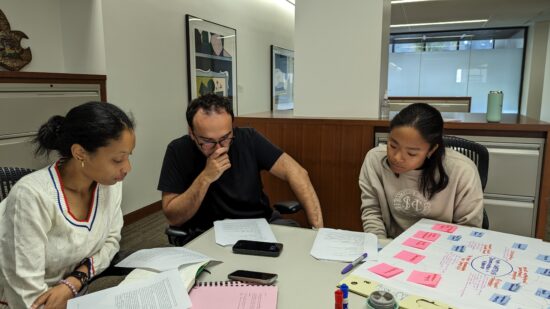Strategic Advocacy in the Face of Setbacks
One of the most valuable lessons our team learned during our time in the Clinic is the variety of forms advocacy can take. Traditionally, lawyers may be understood as speaking on behalf of their clients, as the intermediary between the courts and the general population. However, through our work, much of which involved collaborating with activists, writing for non-legal audiences, and reflecting on our work as we went along, we learned that advocacy works best when lawyers support, rather than supplant, their partners’ efforts.

We learned how to cultivate hope and resilience in the face of seemingly insurmountable challenges. Our project involved work on a human rights issue—LGBTQI+ rights in Uganda – which saw the recent passage of the second passage of the draconian Anti-Homosexuality Act (AHA) in the last decade. The AHA applies the death penalty to certain cases of homosexuality; and criminalizes people who provide housing, healthcare, and other essential services to members of the LGBTQI+ community. The LGBTQI+ movement is one marked by remarkable advances in rights as well as major backlash and setbacks. How to grapple with and proactively respond to such setbacks while maintaining hope was a central theme to our work. Speaking with our partners and other advocates in the SOGI (sexual orientation and gender identity) rights field taught us to view setbacks as evidence of progress. LGBTQI+ activists noted that facing seemingly devastating setbacks, such as the passage of the AHA, can actually be a sign that you have achieved progress because if you had not, such a backlash would not occur.
We also learned how to cultivate hope and resilience in the face of seemingly insurmountable challenges.
The Clinic also provided each of us with the space and support to develop as individuals and professionals. Whether scheduling meetings with partners, arranging plans for travel, or writing collaboratively on our project, we were able to develop crucial skills that we will use in any future professional setting.
